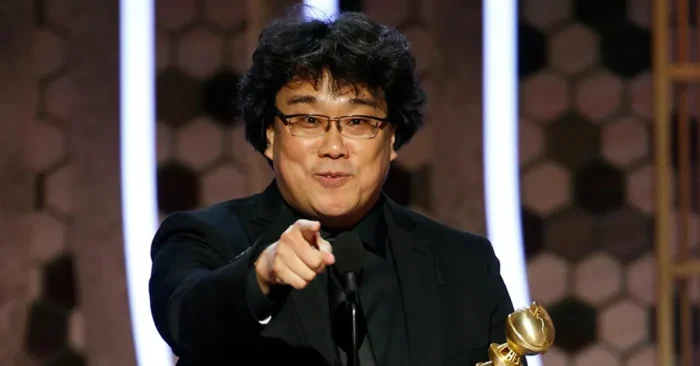Bong Joon-ho – Biography
Early Life
Bong Joon-ho was born on September 14, 1969, in Daegu, South Korea. He grew up in a highly educated and artistic family—his father was a graphic designer and professor, and his grandfather was a noted author. From a young age, Bong was drawn to storytelling and film. He began making amateur movies while in middle school, using an 8mm camera. After high school, he studied sociology at Yonsei University while also joining a film club that sparked his passion for directing. He later attended the Korean Academy of Film Arts, where he developed his skills in screenwriting and cinematography.
Early Career
Bong started his career in the early 1990s, working as an assistant director and scriptwriter. His early work in short films and screenplays built his reputation within the Korean film industry. In 2000, he made his directorial debut with “Barking Dogs Never Bite,” a dark comedy that received critical acclaim for its originality and satirical tone. Though not a major box office hit, it marked the beginning of Bong’s unique voice as a filmmaker, blending social commentary with dark humor and genre-bending narratives.
Breakthrough Success
Bong’s breakthrough came with “Memories of Murder” (2003), a crime thriller based on a real-life serial killer case in South Korea. The film was a commercial and critical success, praised for its gripping storytelling and emotional depth. It won numerous awards and established Bong as one of South Korea’s most talented directors. His ability to blend suspense with social issues became a defining feature of his work, setting him apart from his contemporaries.
International Attention
In 2006, Bong directed “The Host,” a monster film that became the highest-grossing South Korean film at the time. It combined horror, family drama, and environmental commentary, receiving acclaim both domestically and abroad. Bong followed with “Mother” (2009), a psychological drama that further demonstrated his range and depth. As his films reached global audiences, he became known for his unconventional narratives, sharp political commentary, and rich character development.
Hollywood and Global Recognition
Bong entered the international spotlight with “Snowpiercer” (2013), a dystopian sci-fi thriller starring Chris Evans and Tilda Swinton. The film was his first English-language project and received strong global reviews. It tackled themes of class struggle and survival aboard a post-apocalyptic train, continuing his tradition of mixing genre with societal critique. He followed with “Okja” (2017), a Netflix-backed project that combined fantasy, adventure, and animal rights themes. “Okja” premiered at Cannes and expanded Bong’s recognition as a bold and visionary filmmaker.
Parasite Triumph
In 2019, Bong released “Parasite,” a dark comedy-thriller that explored class inequality in South Korea. The film premiered at the Cannes Film Festival, where it won the Palme d’Or. It later made history at the 2020 Academy Awards, becoming the first non-English language film to win Best Picture. Bong also won Oscars for Best Director and Best Original Screenplay. “Parasite” was celebrated for its brilliant storytelling, suspenseful pacing, and powerful commentary, cementing Bong’s status as one of the most influential directors in modern cinema.
Legacy and Influence
Today, Bong Joon-ho is recognized for reshaping global cinema. His ability to blend genres, balance humor and horror, and challenge social norms has made him a unique voice in film. He remains committed to Korean cinema while continuing to work on international projects. Bong is known for his humility, wit, and meticulous attention to detail, earning respect across the industry. He continues to inspire filmmakers around the world with stories that are both deeply personal and globally resonant.
Frequently Asked Questions (FAQs)
What is Bong Joon-ho best known for?
He is best known for directing “Parasite,” the first non-English film to win Best Picture at the Oscars.
What themes does Bong explore in his films?
His films often explore class struggle, family dynamics, and social inequality through genre storytelling.
Has Bong worked in Hollywood?
Yes, he directed “Snowpiercer” and “Okja,” which were international projects featuring global casts.
What awards has Bong Joon-ho won?
He has won multiple international awards, including the Palme d’Or and four Academy Awards for “Parasite.”
Is Bong Joon-ho still active?
Yes, he continues to work on new films and is involved in both Korean and international cinema projects.






